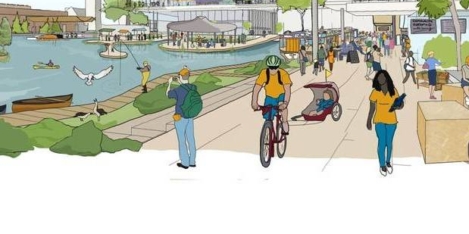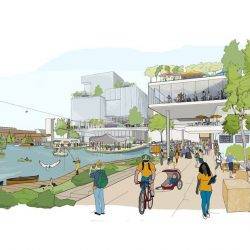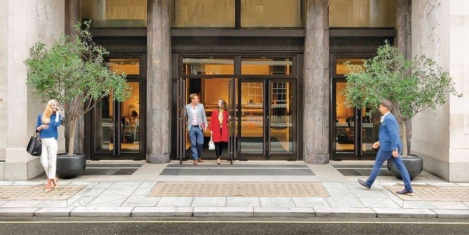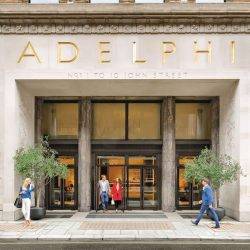October 20, 2017
One-fifth of UK jobs under threat from automation, but some regions more at risk than others
 Automation will affect one in five jobs across the UK, according to a new study from the thinktank Future Advocacy. According to the report, the risk of jobs being becoming automated is higher in some areas more than others and in the case of shadow chancellor John McDonnell’s west London constituency of Hayes and Harlington hits 40 percent, largely because it contains Heathrow Airport which employs a large number of people whose jobs are most at risk from automation. However, the report claims that a mere 2 percent of people surveyed were ‘very worried’ that they might be replaced by a machine, with a further 5 percent saying they were ‘fairly worried’.
Automation will affect one in five jobs across the UK, according to a new study from the thinktank Future Advocacy. According to the report, the risk of jobs being becoming automated is higher in some areas more than others and in the case of shadow chancellor John McDonnell’s west London constituency of Hayes and Harlington hits 40 percent, largely because it contains Heathrow Airport which employs a large number of people whose jobs are most at risk from automation. However, the report claims that a mere 2 percent of people surveyed were ‘very worried’ that they might be replaced by a machine, with a further 5 percent saying they were ‘fairly worried’.













 British workers are lagging behind employees from other countries when it comes to flexible working hours and benefits like extended leave, suggests new research. New independent research commissioned by travel specialists Opodo.co.uk compared Britain with other nations across Europe and the USA, which reveals that British companies are lagging behind other businesses when it comes to flexible working. Three-quarters of employees in the UK (75 percent) don’t believe they have a generous holiday allowance and 84 percent aren’t offered time back in lieu for days worked over the weekend. It’s of no surprise then that 69 percent of Brits don’t think they have a good work-life balance.
British workers are lagging behind employees from other countries when it comes to flexible working hours and benefits like extended leave, suggests new research. New independent research commissioned by travel specialists Opodo.co.uk compared Britain with other nations across Europe and the USA, which reveals that British companies are lagging behind other businesses when it comes to flexible working. Three-quarters of employees in the UK (75 percent) don’t believe they have a generous holiday allowance and 84 percent aren’t offered time back in lieu for days worked over the weekend. It’s of no surprise then that 69 percent of Brits don’t think they have a good work-life balance.
 An overwhelming majority of employees are deliberately seeking out information they are not permitted to access, exposing a major cybersecurity problem among today’s workforce, claims new research published by One Identity. The survey, conducted by Dimensional Research, polled more than 900 IT security professionals on trends and challenges related to managing employee access to corporate data. Among key findings, a remarkable 92 percent of respondents report that employees at their organisations try to access information that is not necessary for their day-to-day work – with nearly one in four (23 percent) admitting this behaviour happens frequently. Most alarmingly, the report indicates that IT security professionals themselves are among the worst offenders of corporate data snooping. One in three respondents admit to having accessed sensitive information that is not necessary for their day-to-day work.
An overwhelming majority of employees are deliberately seeking out information they are not permitted to access, exposing a major cybersecurity problem among today’s workforce, claims new research published by One Identity. The survey, conducted by Dimensional Research, polled more than 900 IT security professionals on trends and challenges related to managing employee access to corporate data. Among key findings, a remarkable 92 percent of respondents report that employees at their organisations try to access information that is not necessary for their day-to-day work – with nearly one in four (23 percent) admitting this behaviour happens frequently. Most alarmingly, the report indicates that IT security professionals themselves are among the worst offenders of corporate data snooping. One in three respondents admit to having accessed sensitive information that is not necessary for their day-to-day work.
 Take up of new commercial offices in London’s West End in September 2017 hit the highest quarterly total on record – with tech and media firms, along with serviced office schemes being the most active, according to figures from real estate advisor Savills. The take-up was 857,259 sq ft (79,639 sq m) – bringing total take-up by the third quarter to 1.62 million sq ft (150,498 sq m). Leasing activity in the third quarter of 2017 brings total take-up year to date, to 3.99 million sq ft (370,671 sq m), which already surpasses 2016’s total annual take-up (3.97 million sq ft) and places the West End in a strong position to exceed the record 4.3 million sq ft (399,470 sq m) amassed in 2015. Key deals that helped elevate the market included: Aegis pre-letting the entire 310,000 sq ft (28,799 sq m) at British Land’s 1 Triton Square; The Boston Consulting Group pre-letting 123,500 sq ft (11,473 sq m) at 80 Charlotte Street and Spotify acquiring 104,133 sq ft (9,674 sq m) at The Adelphi.
Take up of new commercial offices in London’s West End in September 2017 hit the highest quarterly total on record – with tech and media firms, along with serviced office schemes being the most active, according to figures from real estate advisor Savills. The take-up was 857,259 sq ft (79,639 sq m) – bringing total take-up by the third quarter to 1.62 million sq ft (150,498 sq m). Leasing activity in the third quarter of 2017 brings total take-up year to date, to 3.99 million sq ft (370,671 sq m), which already surpasses 2016’s total annual take-up (3.97 million sq ft) and places the West End in a strong position to exceed the record 4.3 million sq ft (399,470 sq m) amassed in 2015. Key deals that helped elevate the market included: Aegis pre-letting the entire 310,000 sq ft (28,799 sq m) at British Land’s 1 Triton Square; The Boston Consulting Group pre-letting 123,500 sq ft (11,473 sq m) at 80 Charlotte Street and Spotify acquiring 104,133 sq ft (9,674 sq m) at The Adelphi.


















October 19, 2017
How our smartphones stop us from living in the moment
by Joelle Renstrom • Comment, Technology, Wellbeing
(more…)